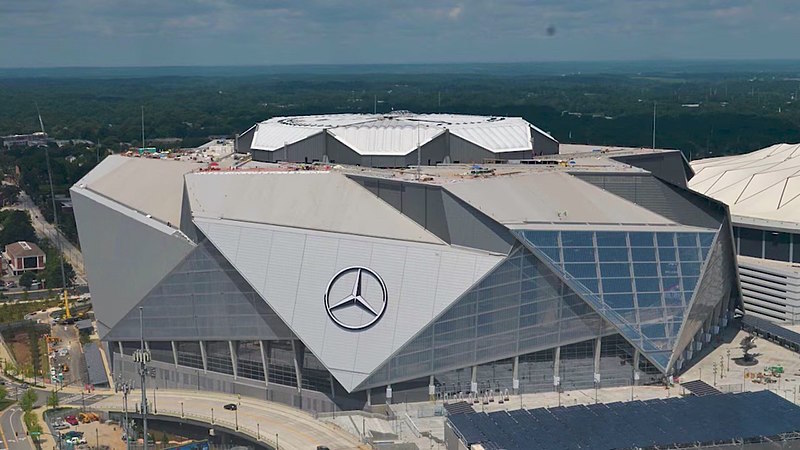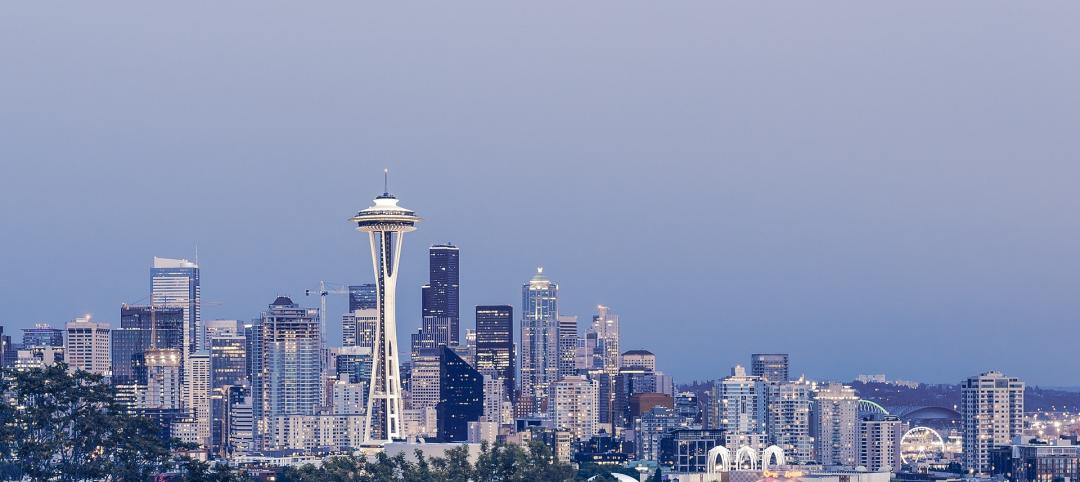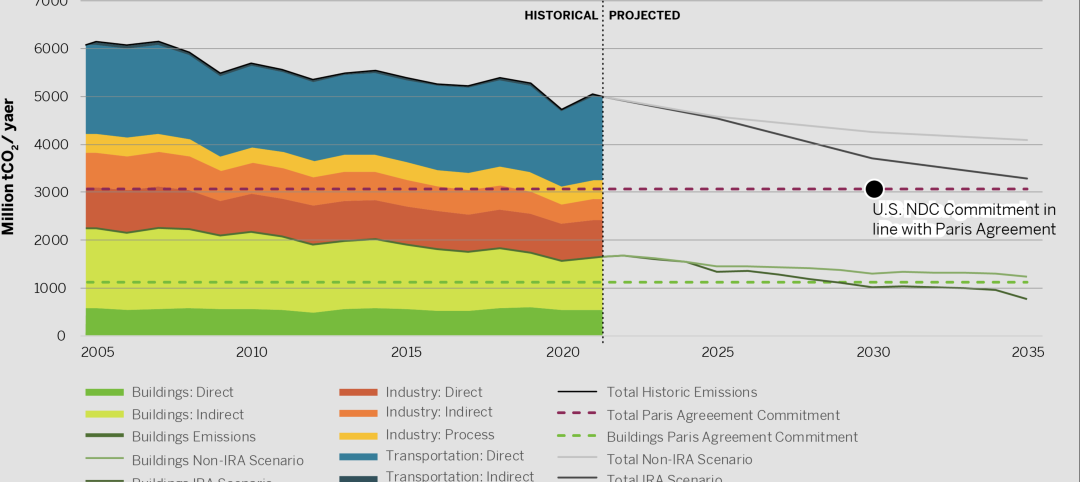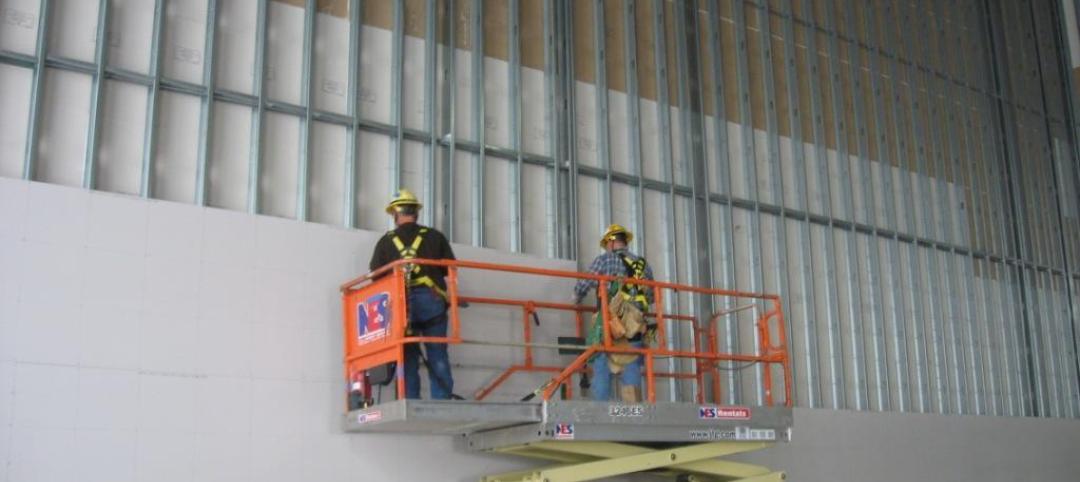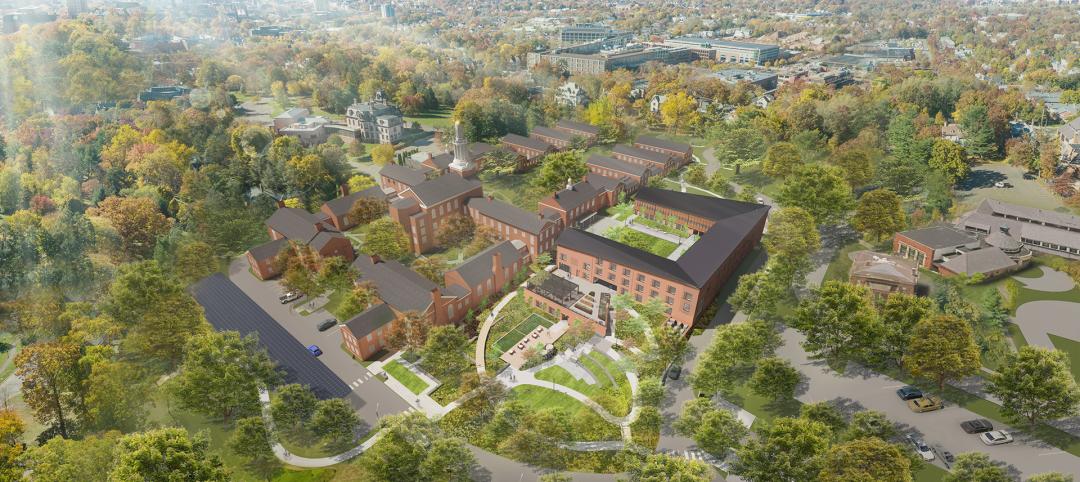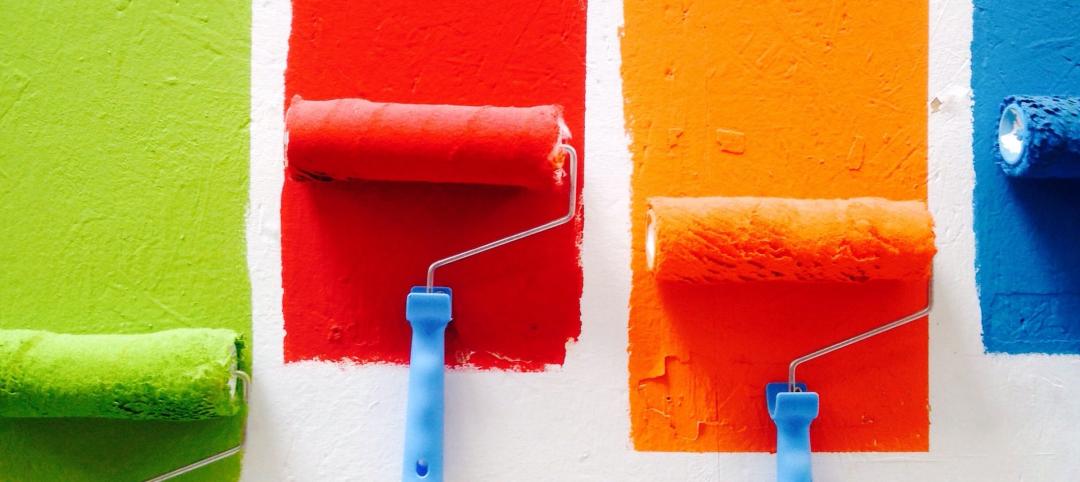The U.S. Green Building Council (USGBC) released the annual list of the Top 10 States for LEED (Leadership in Energy and Environmental Design). The list ranks states in terms of certified square feet per resident in 2017. The list draws attention to states throughout America that are making significant strides in sustainable design, construction, and transformation at the building level and opens up conversations around community and city-level accomplishments in sustainable development. LEED-certified spaces use less energy and water; save money for families, businesses and taxpayers; reduce carbon emissions; and create a healthier environment for occupants and the community at large.
Now in its eighth year, the list is based on 2010 U.S. Census data and includes commercial and institutional green building projects that were certified throughout 2017. Massachusetts retained its top position for the second year in a row with 130 LEED certifications representing 4.48 square feet of LEED-certified space per resident, the highest since 2010.
The mid-Atlantic continues to show strong regional leadership, with both Maryland and Virginia returning to the list for the seventh year running. Also notable, Washington, D.C., which is not included in the official list of top states due to its status as a federal territory, tops the nation with 39.83 square feet of space per resident certified in 2017.
With Georgia, Hawaii and Minnesota all returning to the list for the first time since 2014, it is clear that market uptake for LEED is strong nationwide and not limited to any particular region or corridor. Illinois and Colorado are the only states to have made the list every year since the inception of the ranking in 2010. This year, Illinois comes in third with 3.38 square feet per capita and Colorado places 10th with 2.27 square feet per capita. The 2017 list has the highest average square footage per resident per state since 2010 (2.9). The full ranking is as follows:
Rank State GSF Per Capita
1 MA* 4.48
2 NY* 3.39
3 IL* 3.38
4 HI 3.32
5 MD* 2.75
6 MN 2.45
7 GA 2.44
8 CA* 2.4
9 VA* 2.32
10 CO* 2.27
** DC 39.83
*Included in 2016 Top 10 States for LEED list
**Washington, D.C. is not ranked as it is a federal district, not a state
USGBC calculates the list using per capita figures to allow for a fair comparison of the level of green building taking place among states with significant differences in population and number of overall buildings.
In 2017, LEED for Building Operations and Maintenance (LEED O+M) was once again the most popular rating system within the Top 10 States, representing more than 50% of the total square footage certified. LEED for Building Design and Construction (LEED BD+C) was the second most popular and LEED for Interior Design and Construction (LEED ID+C) was the third most popular rating system.
Collectively, 1,399 commercial and institutional projects achieved LEED certification within the Top 10 States in 2017, representing 314.7 million square feet of real estate. Nationwide, 2,647 commercial and institutional projects achieved LEED certification in 2017, representing 484.6 million square feet of real estate.
More than 40,000 commercial and institutional projects representing more than 6.5 billion square feet of space have been LEED-certified to date worldwide, with another 51,000 projects representing 13 billion square feet in the pipeline for certification. LEED’s newest version, LEED v4, features increased technical rigor; new market sector adaptations for data centers, warehouses and distribution centers, hospitality, existing schools, existing retail and midrise residential projects; and a simplified submission process supported by a robust and intuitive technology platform. Tracking ongoing building performance is a growing priority and a number of projects in the Top 10 States achieved certification through the Arc online performance platform, which uses data to measure and improve sustainability performance. Arc delivers a performance score based on building data and action-oriented strategies across energy, water, waste, transportation, and human experience.
Related Stories
Codes and Standards | Dec 18, 2023
ASHRAE releases guide on grid interactivity in the decarbonization process
A guide focusing on the critical role of grid interactivity in building decarbonization was recently published by ASHRAE. The Grid-Interactive Buildings for Decarbonization: Design and Operation Resource Guide provides information on maximizing carbon reduction through buildings’ interaction with the electric power grid.
75 Top Building Products | Dec 13, 2023
75 top building products for 2023
From a bladeless rooftop wind energy system, to a troffer light fixture with built-in continuous visible light disinfection, innovation is plentiful in Building Design+Construction's annual 75 Top Products report.
Codes and Standards | Dec 11, 2023
Washington state tries new approach to phase out fossil fuels in new construction
After pausing a heat pump mandate earlier this year after a federal court overturned Berkeley, Calif.’s ban on gas appliances in new buildings, Washington state enacted a new code provision that seems poised to achieve the same goal.
Green | Dec 11, 2023
U.S. has tools to meet commercial building sector decarbonization goals early
The U.S. has the tools to reduce commercial building-related emissions to reach target goals in 2029, earlier than what it committed to when it signed the Paris Agreement, according to a report by the U.S. Green Building Council.
Industry Research | Dec 9, 2023
Two new reports provide guidance for choosing healthier building products
The authors, Perkins&Will and the Healthy Building Network, home in on drywall, flooring, and insulation.The authors, Perkins&Will and the Healthy Building Network, home in on drywall, flooring, and insulation.
University Buildings | Dec 8, 2023
Yale University breaks ground on nation's largest Living Building student housing complex
A groundbreaking on Oct. 11 kicked off a project aiming to construct the largest Living Building Challenge-certified residence on a university campus. The Living Village, a 45,000 sf home for Yale University Divinity School graduate students, “will make an ecological statement about the need to build in harmony with the natural world while training students to become ‘apostles of the environment’,” according to Bruner/Cott, which is leading the design team that includes Höweler + Yoon Architecture and Andropogon Associates.
Industrial Facilities | Nov 14, 2023
Some AEC firms are plugging into EV charging market
Decentralized electrical distribution is broadening recharger installation to several building types.
Sustainability | Nov 1, 2023
Researchers create building air leakage detection system using a camera in real time
Researchers at the U.S. Department of Energy’s Oak Ridge National Laboratory have developed a system that uses a camera to detect air leakage from buildings in real time.
Sustainability | Nov 1, 2023
Tool identifies financial incentives for decarbonizing heavy industry, transportation projects
Rocky Mountain Institute (RMI) has released a tool to identify financial incentives to help developers, industrial companies, and investors find financial incentives for heavy industry and transport projects.
Codes and Standards | Oct 10, 2023
Green Seal will not certify any paints, coatings, floor care products containing PFAS
Green Seal will no longer certify any paints and coatings, floor care products, adhesives, and degreasers containing any per- and polyfluoroalkyl substances (PFAS), commonly called “forever chemicals.”


